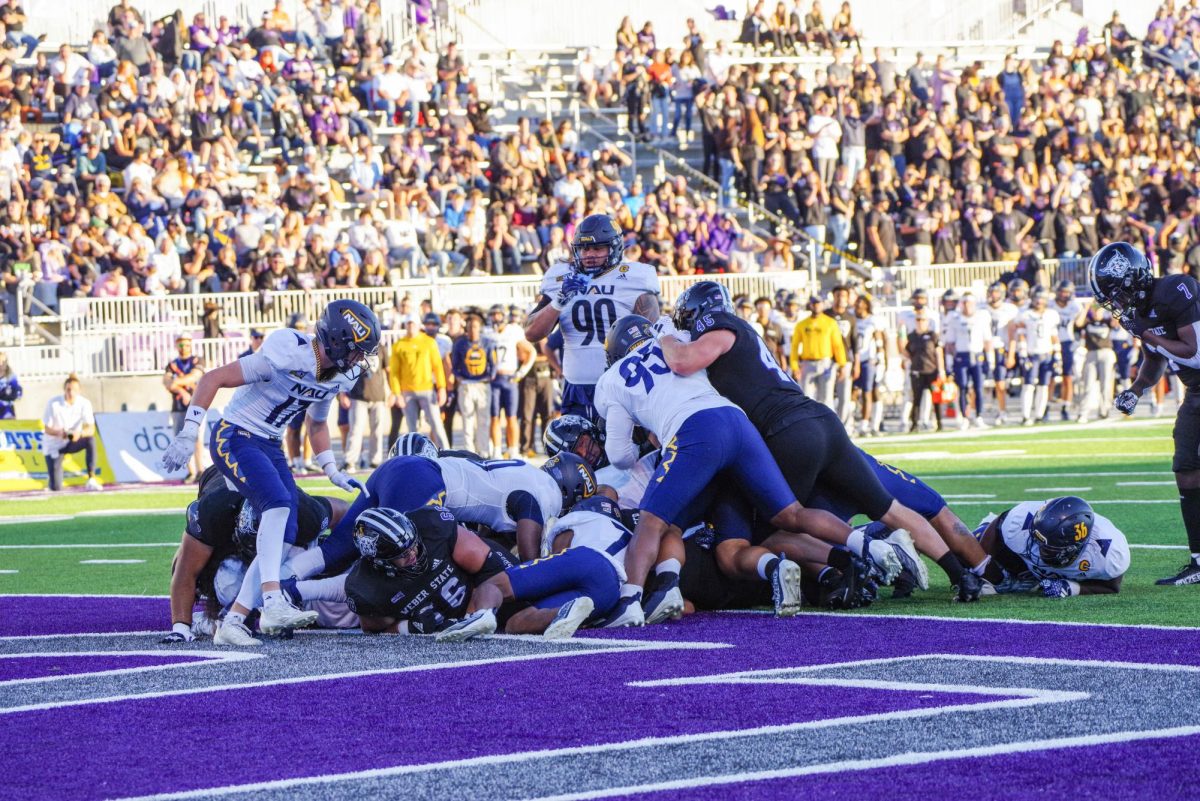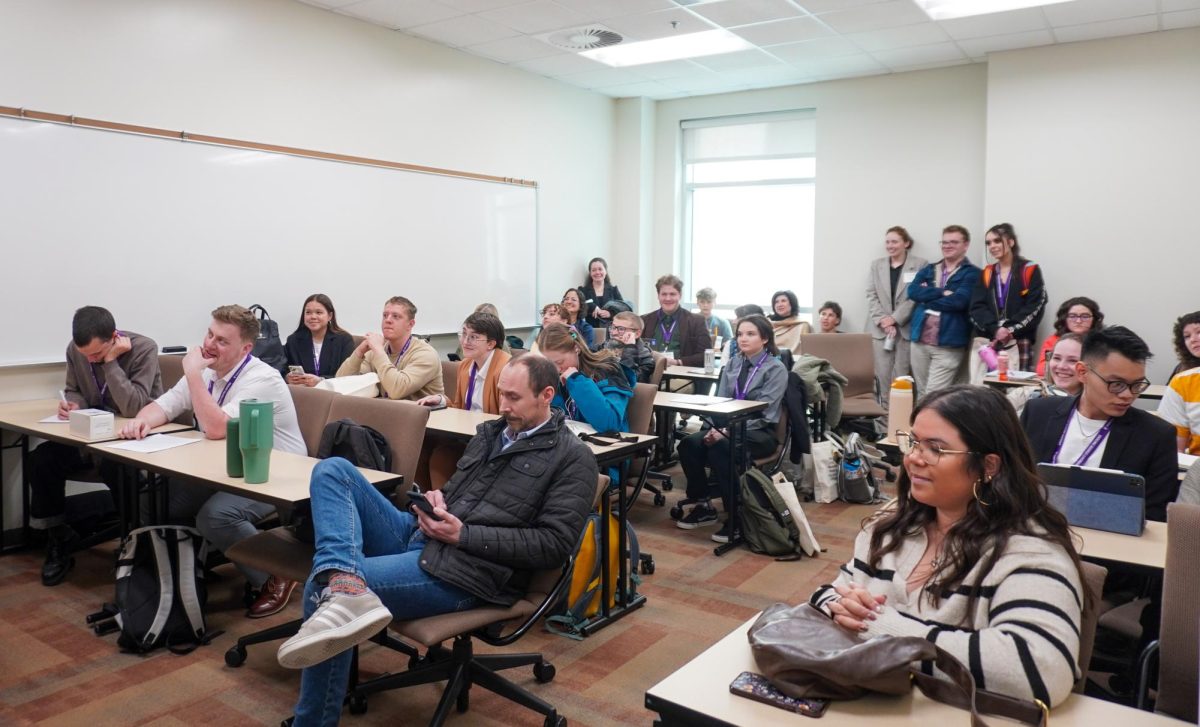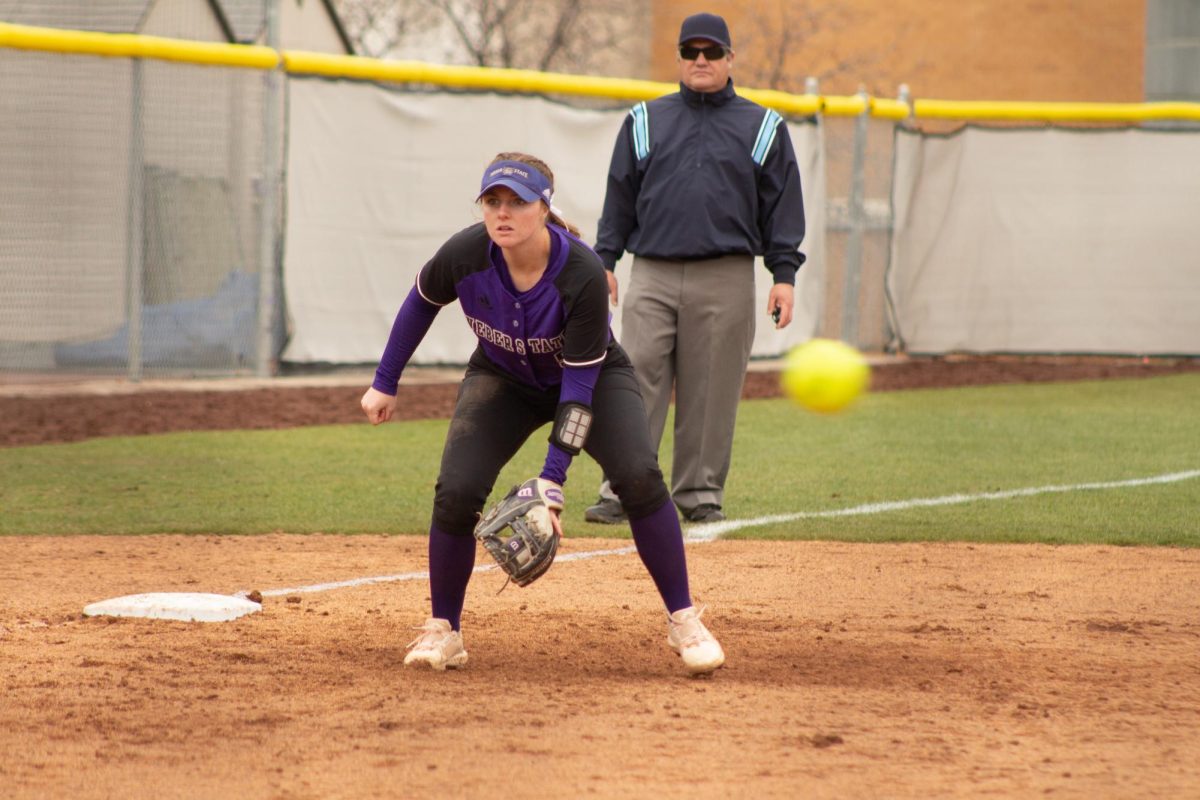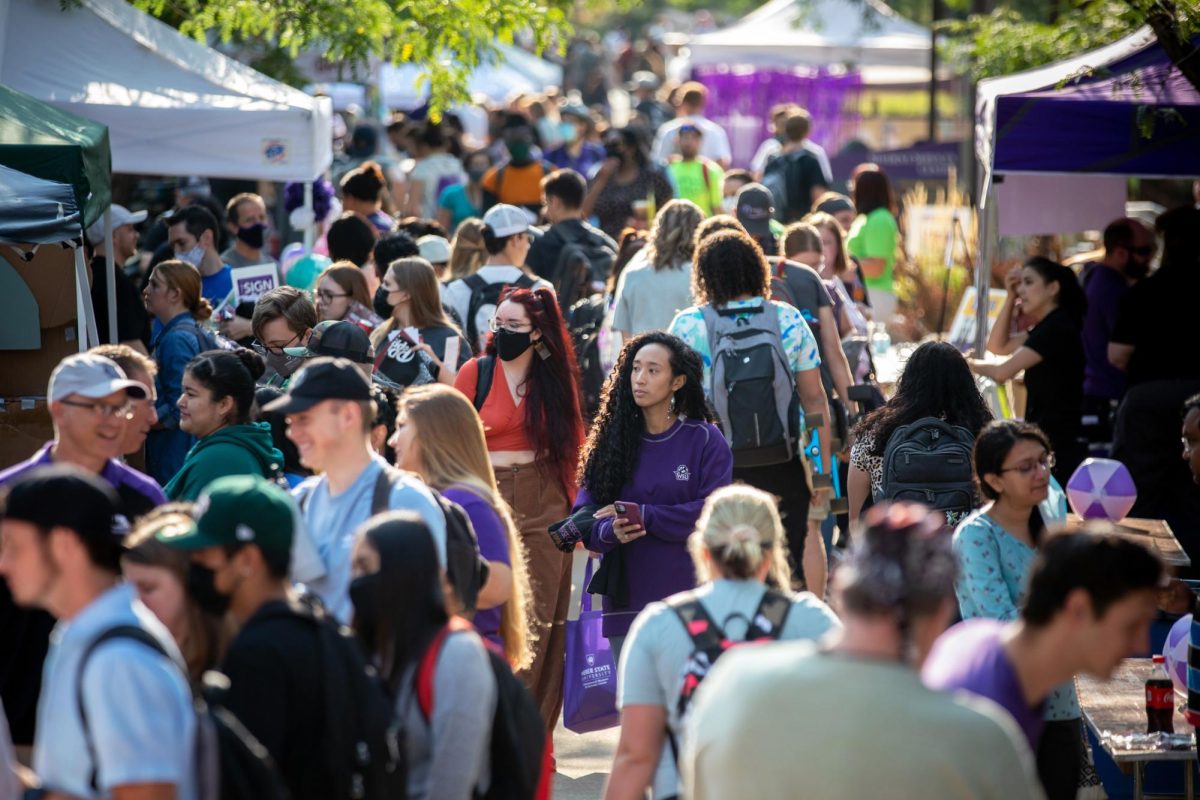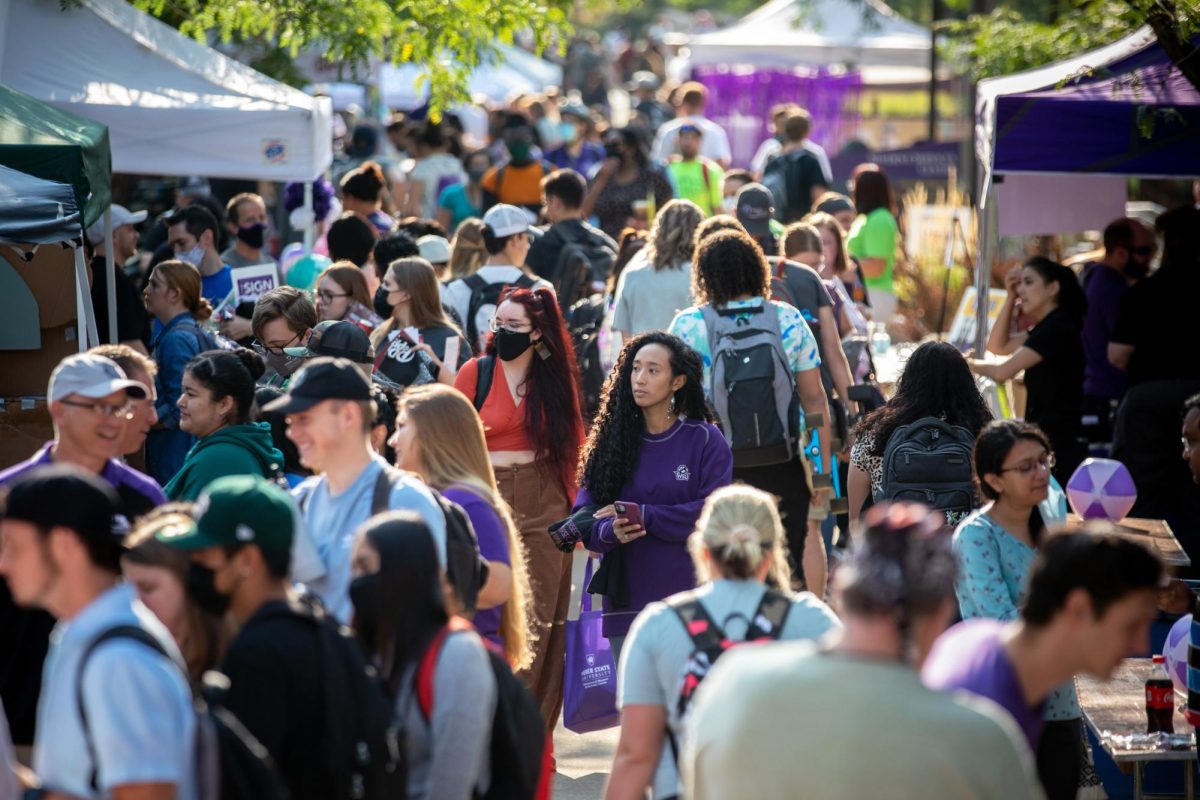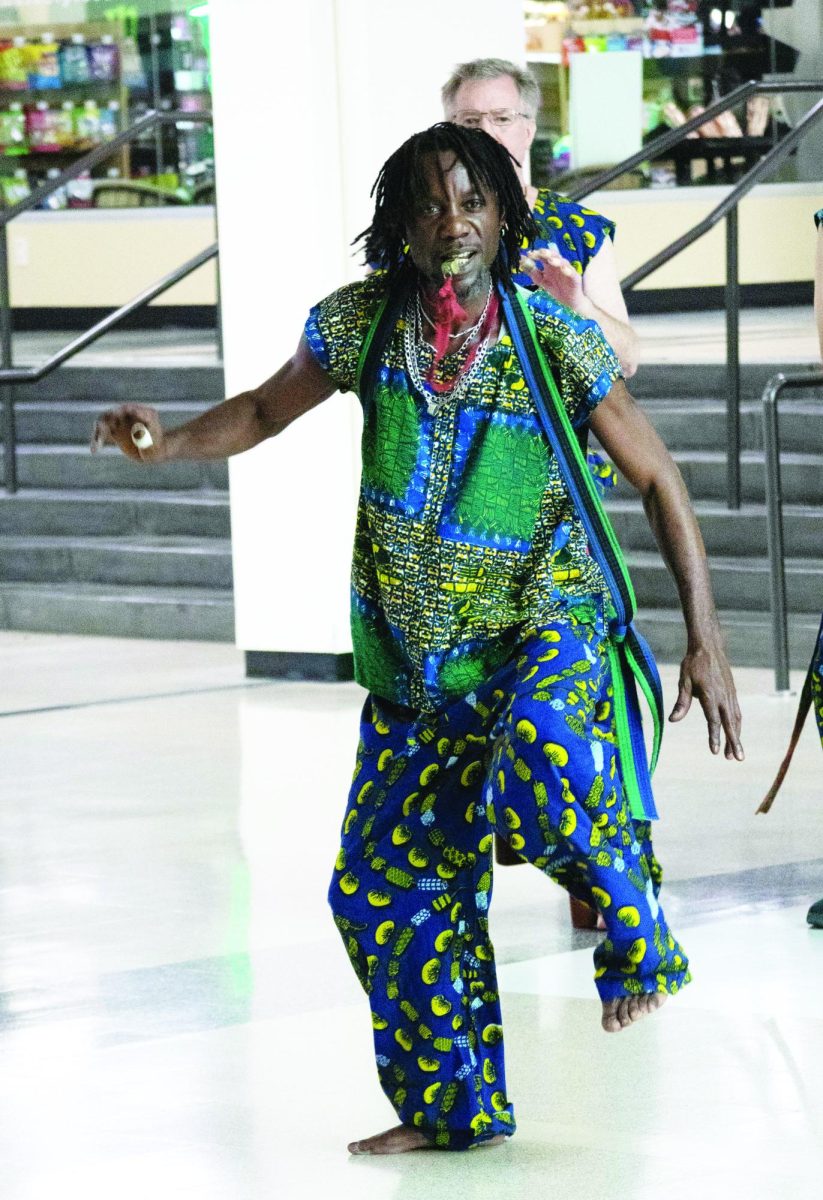Jesus Rebolledo faced many challenges while getting his degree. He came from a low-income family with five siblings, where the highest education in the family was ninth grade. The 25-year-old medical laboratory sciences major was the first in his family to go to college.
But that did not stop him. Unable to seek needed help from home, Rebolledo said he turned to tutoring and consulting help on campus, spending a few hundred hours in the math lab and Writing Center to make sure he understood the material he was learning.
He was also able to seek out financial help from the university, which, he joked, was like always having to confirm how poor he was.
Rebolledo said for his first couple of years of college, he was lucky to not have to work while going to school, because his parents were adamant that he focused on his education.
However, around his third year, he decided he wanted to work to lower the amount of financial aid and student loans he needed. He got a job as a lab aid in the medical laboratory sciences department.
After completing his associates degree and becoming a certified medical lab technologist, he picked up a second job at the Layton lab of Tanner Clinic. Now he continues to work at both while attending school full time.
Though Rebolledo’s parents constantly see him awake at odd hours and worry about him burning out because he tends to study, volunteer and work more than he sleeps, he said they are always supportive of him.
“They know that I will put 100 percent effort into becoming a physician’s assistant, and they realize that me doing everything I can to make myself a better candidate will pay off in the end and will continue to support me until I reach my final goal,” Rebolledo said.
When COVID-19 hit, Rebolledo said one of the main challenges in his schooling was that they had to speed through their practical labs to follow safety protocols, and that meant that he barely had time to get the hang of a concept before the final practical.
He also said he had to teach himself how to study better at home since he typically learns better in a classroom.
Rebolledo said that he and his cohort had become close — going through classes and doing study groups together — and now it’s sad they have to stay secluded from one another.
Despite the cons, Rebolledo said one pro to experiencing college through a pandemic was that he had the freedom to take exams from home at any time he wanted.
“I am really bad at sleeping when I need to take a test, so instead of tossing and turning all night thinking about it, I stay up and study, then take the test at 1 or 2 a.m.,” Rebolledo said.
Rebolledo is now set to graduate with his bachelor’s degree in December, and plans to apply for physician’s assistant school after that. He said that, while being a first generation student is hard, it’s far from impossible if one is willing to step out of their comfort zone, push themselves, ask for help and remember that they’re not alone.
Evangelina Marquez, 20-year-old psychology major and First Generation Club President, has also overcome challenges to be the first to go to college in her family.
Marquez’s college journey began her sophomore year of high school when she began taking CE and AP classes because she was afraid that she wouldn’t be able to attend college after high school due to the cost of tuition.
She ended up graduating high school with 34 college credits.
When Marquez began her first year of college, she had to move out on her own to relieve some of the financial strain her single mother shoulders while caring for Marquez’s other siblings.
Since then, she has always maintained at least a part-time job.
Marquez said her mother and family have always been proud and supportive of her progress.
“I have always been so self-motivated, but it is because I have the best support system; my family will always be there when I am needing words of encouragement or a shoulder to cry on,” Marquez said.
Despite the support, Marquez said it’s still difficult at times for her mother to understand what she’s going through.
“My mother has a very hard time relating to the stress that college brings, nor can she sympathize when I am exhausted or completely overwhelmed,” Marquez said. “It is hard explaining to my siblings and my mother that I cannot attend birthdays or family dinners because I am completely swamped with work to do.”
When the pandemic quarantine began in March, Marquez quit her job as a dental assistant out of fear of contracting the virus and was unemployed for two months.
She said she experienced overwhelming anxiety and had a hard time maintaining an optimistic outlook on the future. She also said her grades took a hard hit that semester, which was discouraging.
She was later able to get two new jobs that allowed her to work from home, and she said that she otherwise welcomes the quarantine because she loves being at home. She also feels that she is more productive when she works from home.
During the pandemic, Marquez has also been helping her sister by having her 5-year-old niece come over every day from 6 a.m. to noon, where Marquez helps her niece complete kindergarten packet work and online assignments and log into her daily Zoom meetings for school.
Marquez said the long days are hard, but that she also can’t see life being any other way, and she is grateful to get to be involved in her niece’s kindergarten experience and to watch her learn new things every day.
“When things get hard to handle, I just have to keep reminding myself that all good things take immense time and effort,” Marquez said.
Maria Fregoso, 20-year-old social work major and vice president of the First Generation Club, has another similar experience. Fregoso’s parents emigrated from Mexico to establish a better life for themselves and their family in the U.S., and Fregoso is, again, the first in her family to attend college.
Fregoso said the hardest thing she had to do was during her freshman year when she worked at a bagel shop to pay for college: she would wake up every day, except Saturdays and Sundays, at 2 a.m. because the shop opened at 3 a.m.
She then wouldn’t go to bed until 11 p.m. because of school and all of the extracurriculars she was doing to try and maintain a social life on campus. She also had to move out of the house at 18, and, during her first year of college, she lived at Weber. She later moved into an apartment near campus with three other girls.
Despite not knowing how college works in the U.S., Fregoso’s parents have always been very supportive, talking to co-workers to find out how everything works and to find opportunities for her. She said they also regularly take time to catch up with her and ask how everything is going.
“They are so proud of me and always tell me that I am the spark in the fire,” Fregoso said.
As far as the pandemic goes, Fregoso said she views it as a blessing that has helped her learn what she wants to do in life and for her career, see a different side of herself mentally and physically, branch out of her comfort zone and grow to a new level.
She has also been keeping very busy as an Alternative Break assistant director, vice president for the First Generation club, an active member in the Latinos in Action Club and as a blood donor ambassador for the Red Cross.
“I am beyond busy, but I am getting it done,” Fregoso said.
First generation students are not alone on campus. Fregoso said the First Generation Club aims to establish a support system within the community that empowers first generation students to be successful in their academic careers. They strive to form a strong community bond through recreational activities, networking opportunities and community service.
“I think the great part of being a first generation college student is the fact that most of us feel the same way,” Fregoso said. “We all experience similar struggles in life and understand the other duties and roles we have at home.”
Marquez said anyone, whether they’re a first generation student or an ally, is welcome to participate with the club in their monthly events. Those who want to join the club roster and receive info about events can email wsufirstgenclub@gmail.com. Those interested can also follow their Instagram, @wsufirstgen, and Twitter, @wsu_1stgenclub.







